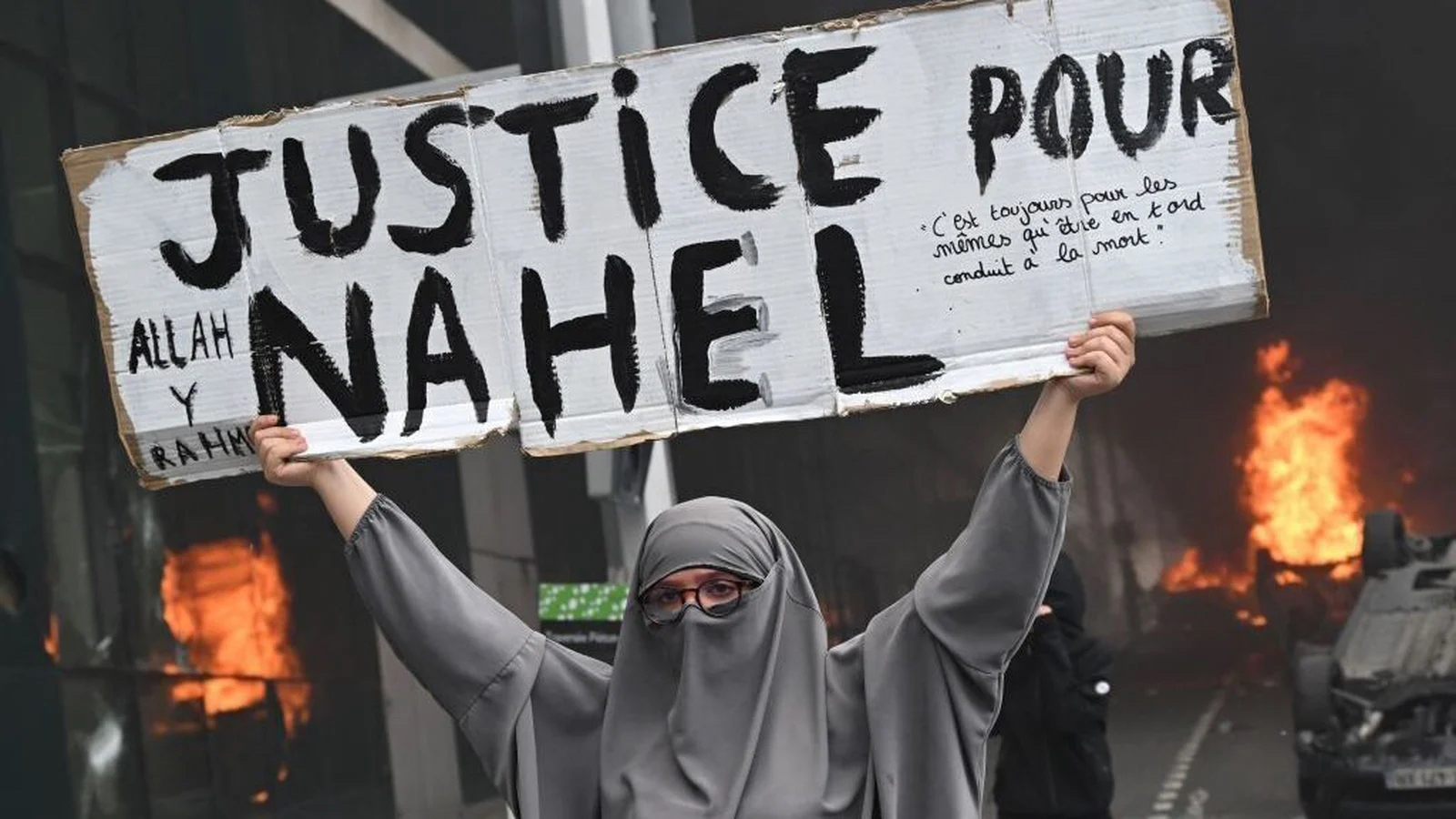
French police have arrested more than 3,000 protesters in unrest that has spread since the fatal police shooting of 17-year-old delivery worker Nahel Merzouk, the son of immigrants from Algeria and Morocco, during a traffic stop in the Paris suburb of Nanterre June 27. The Ministry of the Interior has mobilized some 45,000 police troops and gendarmes, as fierce clashes with police have spread across the country. On July 2, rioters rammed a burning car into the home of the mayor of Paris suburb L’Haÿ-les-Roses. Merzouk’s grandmother later pleaded with protesters to stop the violence. The UN Office of the High Commissioner for Human Rights issued an appeal to French authorities, writing: “This is a moment for the country to seriously address the deep issues of racism and discrimination in law enforcement… Any allegations of disproportionate use of force must be swiftly investigated.” The officer who fired the shot that killed Merzouk has been taken into custody on charges of voluntary homicide. (Jurist)
The French far right is meanwhile baiting President Emmanuel Macron for what they portray as a weak response to the uprising. Marine Le Pen of the Rassemblement National (formerly the Front National) issued an inflammatory video statement warning of “anarchy” and calling for a state of emergency to be declared if the riots do not subside.
Marion Maréchal, Le Pen’s niece and a former Front National parliamentarian now working with anti-immigrant politician Eric Zemmour, has repeatedly invoked “civil war.” In one comment reported by Le Figaro, she said: “Every time the state backs down from these urban guerrillas, it’s one step closer to civil war.”
Maréchal added in a video statement released on Twitter: “[W]e are in a state of civil war. The security forces complain that they do not have enough ammunition to intervene. At this rate, French citizens will have to take on the task of protecting themselves. The French can no longer tolerate their businesses being looted, their cars being burned and their relatives being attacked.” (Turkiye)
France has seen repeated similar youth uprisings in recent years—in 2012, in 2007, in 2006 (twice), and most significantly in 2005.
Photo via Crimethinc





Mother of youth fatally shot by French police holds protest
The mother of a teenage boy who was fatally shot by the French police held a protest on Nov. 19 over the release of the officer who killed her son. The officer was released from custody but remains under supervision as the case is further investigated.
Nahel Merzouk was 17 when he was shot and killed in a traffic stop on June 27. The officer responsible for his death, who has been identified as “Florian M.,” was jailed two days later while charges of voluntary homicide were investigated. The death of Nahel, whose parents are Algerian and Moroccan, sparked widespread unrest across France. In the first seven days of consecutive protests, 3,000 people were arrested.
Four-and-a-half months after Nahel’s death, on Nov. 15, the officer was released, as he no longer met the “legal criteria” under which he was held. His judicial supervision means he is restricted in his movements while the case is further investigated. In response to his release, Nahel’s mother, Mounia, organized a peaceful protest in the place where her son died, Nelson Mandela Square in Nanterre. 500 demonstrators attended the event, with many wearing shirts that read “Justice for Nahel.” (Jurist)
Protests across France ahead of court ruling on immigration law
In the lead-up to a highly-anticipated ruling from France’s Constitutional Court, hundreds of thousands gathered across the country to protest against President Emmanuel Macron’s proposed immigration law reform package.
The reforms, supported by the far-right and Macron alike, would expand the power for authorities to deport non-citizens considered “undesirable,” and would make it more difficult for family members of migrants to reunite by way of domestic relocation.
After the law passed parliament by a wide margin in October 2023, a group of four parties from the National Assembly filed a “last resort” action with te Constitutional Council seeking to invalidate up to 20 provisions within the newly-passed law. (Jurist)
France constitutional court rejects portions of immigration bill
The Constitutional Council of France on Jan. 25 rejected substantial portions of President Emmanuel Macron’s proposed immigration law reform package. The legislation, titled “Bill to Control Immigration and Enhance Integration,” initially comprised of 86 articles, was referred before the council for review by a group of lawmakers. Out of those 86 articles, the council raised objection to 32, especially those concerning family reunification. (Jurist)